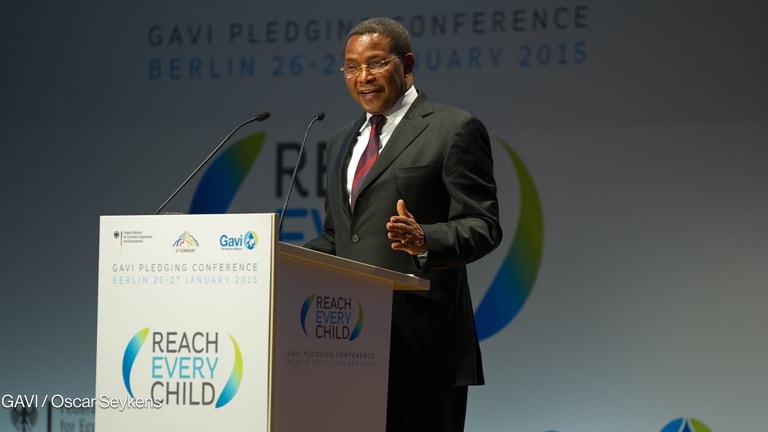
A new vaccine against the leading cause of cervical cancer will now be available for as low as $4.50 per dose in GAVI-supported countries, and the goal is to bring down the price even further.
The human papillomavirus vaccine costs more than $100 in developed countries; the lowest available public sector price is $13. But while the price has largely been reduced, it remains the “most expensive” of all vaccines provided by the alliance, next to pneumoccocal vaccines at $3.50 a dose.
“Once we start large country scale-up, we can have a different conversation with the manufacturers in terms of volumes (…) we already have indication that price will reduce further with larger volumes, which again is important toward the long-term sustainability of this,” GAVI CEO Seth Berkley said in a conference call on Wednesday.
GAVI will be rolling out the vaccine in eight pilot countries, part of what it calls “demonstration programs.” The first on the list is Kenya, where more than 2,000 women are diagnosed with cervical cancer every year, according to the latest data from the World Health Organization.
“When people had the opportunity to visit a cancer ward, seeing women in their 20s that have terminal cancer — trying to deal with it though there’s nothing much they can do about it — one begins to understand why this is such a poignant introduction occuring in most countries,” Berkley noted.
Some 15 countries have applied for the program, although as Devex previously reported only Kenya, Ghana, Laos, Madagascar, Malawi, Niger, Sierra Leone and Tanzania have been approved to date. GAVI expects countries that were initially turned down to “reapply.”
The vaccine is meant for girls aged 9 to 13 years old, but many developing countries don’t do routine health services for this age group. The alliance said the demonstration program would provide the above countries an opportunity to evaluate how ready they are for national roll-out.
Some could run into problems during the pilot period. “Some may say they can’t make it happen (…) but if they have the will and are very motivated, we will work to help build their capacity” in a bid to get everyone toward national adoption, Berkley said. The alliance also provides technical assistance through partners like UNICEF.
Rwanda, where the HPV vaccine was introduced before, will roll it out nationwide with GAVI support in 2014.
Read more development aid news online, and subscribe to The Development Newswire to receive top international development headlines from the world’s leading donors, news sources and opinion leaders — emailed to you FREE every business day.








